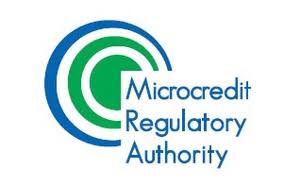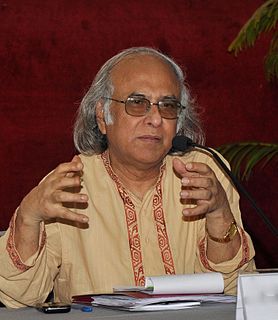
A security is a tradable financial asset. The term commonly refers to any form of financial instrument, but its legal definition varies by jurisdiction. In some countries and languages people commonly use the term "security" to refer to any form of financial instrument, even though the underlying legal and regulatory regime may not have such a broad definition. In some jurisdictions the term specifically excludes financial instruments other than equities and fixed-income instruments. In some jurisdictions it includes some instruments that are close to equities and fixed income, e.g., equity warrants.

Financial regulation is a form of regulation or supervision, which subjects financial institutions to certain requirements, restrictions and guidelines, aiming to maintain the stability and integrity of the financial system. This may be handled by either a government or non-government organization. Financial regulation has also influenced the structure of banking sectors by increasing the variety of financial products available. Financial regulation forms one of three legal categories which constitutes the content of financial law, the other two being market practices and case law.

Microfinance is a category of financial services targeting individuals and small businesses who lack access to conventional banking and related services. Microfinance includes microcredit, the provision of small loans to poor clients; savings and checking accounts; microinsurance; and payment systems, among other services. Microfinance services are designed to reach excluded customers, usually poorer population segments, possibly socially marginalized, or geographically more isolated, and to help them become self-sufficient.
A financial system is a system that allows the exchange of funds between financial market participants such as lenders, investors, and borrowers. Financial systems operate at national and global levels. Financial institutions consist of complex, closely related services, markets, and institutions intended to provide an efficient and regular linkage between investors and depositors.
The Australian financial system consists of the arrangements covering the borrowing and lending of funds and the transfer of ownership of financial claims in Australia, comprising:

Flow of funds accounts are a system of interrelated balance sheets for a nation, calculated periodically. There are two types of balance sheets: those showing

The Bangladesh Securities and Exchange Commission (BSEC) is the regulator of the capital market of Bangladesh, comprising Dhaka Stock Exchange (DSE) and Chittagong Stock Exchange (CSE). The commission is a statutory body and attached to the Ministry of Finance.
A non-banking financial institution (NBFI) or non-bank financial company (NBFC) is a financial institution that does not have a full banking license or is not supervised by a national or international banking regulatory agency. NBFC facilitate bank-related financial services, such as investment, risk pooling, contractual savings, and market brokering. Examples of these include insurance firms, pawn shops, cashier's check issuers, check cashing locations, payday lending, currency exchanges, and microloan organizations. Alan Greenspan has identified the role of NBFIs in strengthening an economy, as they provide "multiple alternatives to transform an economy's savings into capital investment which act as backup facilities should the primary form of intermediation fail."
Bangladesh is a developing country with an impoverished banking system, particularly in terms of the services and customer care provided by the government run banks. In recent times, private banks are trying to imitate the banking structure of the more developed countries, but this attempt is often foiled by inexpert or politically motivated government policies executed by the central bank of Bangladesh, Bangladesh Bank. The outcome is a banking system fostering corruption and illegal monetary activities/laundering etc. by the politically powerful and criminals, while at the same time making the attainment of services or the performance of international transactions difficult for the ordinary citizens, students studying abroad or through distance learning, general customers etc.
A Non-Banking Financial Company (NBFC) is a company registered under the Companies Act, 1956 of India, engaged in the business of loans and advances, acquisition of shares, stock, bonds, hire-purchase insurance business or chit-fund business, but does not include any institution whose principal business is that of agriculture, industrial activity, purchase or sale of any goods or providing any services and sale/purchase/construction of immovable property.

Microcredit Regulatory Authority (MRA) is the central body to monitor and supervise microfinance operations of non-governmental organizations of the Republic of Bangladesh. It was created by the Government of People's Republic of Bangladesh under the Microcredit Regulatory Authority Act. License from the Authority is mandatory to operate microfinance operation in Bangladesh as an NGO.

The Swiss Financial Market Supervisory Authority (FINMA) is the Swiss government body responsible for financial regulation. This includes the supervision of banks, insurance companies, stock exchanges and securities dealers, as well as other financial intermediaries in Switzerland.

The Financial Services Board (FSB) was the government of South Africa's financial regulatory agency responsible for the non-banking financial services industry in South Africa from 1990 to 2018. It was an independent body which had a mandate to supervise and regulate the non-bank financial services industry in the public interest. This included the regulation of the biggest stock exchange in Africa the Johannesburg Stock Exchange. From 1 April 2018 the FSB was split into prudential and market conduct regulators.

The Ministry of Finance is a ministry of Bangladesh. The ministry is responsible for state finance, including the state budget, taxation and economic policy in Bangladesh. It is led by the Finance Minister of Bangladesh. The department must report to the Parliament of Bangladesh. It contains four divisions:

Qazi Kholiquzzaman Ahmad is a Bangladeshi economist and development thinker and activist. He is currently the chairman of Dhaka School of Economics (DScE), a constituent institution of the University of Dhaka, devoted to post-graduate studies in economics and related subjects. He is also the chairman of Palli Karma-Sahayak Foundation (PKSF), which is largest rural development funding, skill development and management support agency in Bangladesh. He received the highest national civilian award Independence Award 2019; and Ekushe Padak 2009, presented by the Government of Bangladesh.

Palli Karma Sahayak Foundation or PKSF is a financial institution founded by the Government of Bangladesh to finance rural development and provide training and is located in Dhaka, Bangladesh. Dr Qazi Kholiquzzaman Ahmad is the Chairman of Palli Karma Sahayak Foundation. It offers financial and non-financial services to the rural people in Bangladesh.

Kashf Foundation is a non-profit organization, founded by Roshaneh Zafar in 1996. Kashf is regarded as the first microfinance institution (MFI) of Pakistan that uses village banking methodology in microcredit to alleviate poverty by providing affordable financial and non-financial services to low income households - particularly for women, to build their capacity and enhance their economic role. With headquarters in Lahore, Punjab, Kashf has regional offices in five major cities and over 200 branches across the Pakistan.
Palli Sanchay Bank, Rural Savings Bank, is a state owned bank in Bangladesh. Md. Akram-Al-Hossain is the Chairman of the bank.











